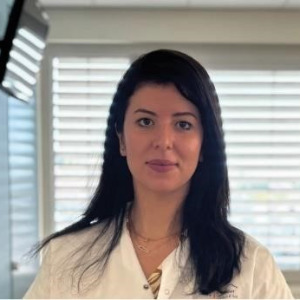Immuno-Oncology Frontiers
Cancer research has undergone a remarkable transformation over the past decade, driven by a deeper understanding of tumor biology and the immune system’s role in combating malignancies. Traditional therapies such as chemotherapy, radiation, and surgery have provided crucial benefits but often come with systemic toxicity, limited selectivity, and variable long-term efficacy. Advances in molecular profiling, genomic sequencing, and biomarker-driven approaches have enabled more precise patient stratification, paving the way for personalized oncology strategies. These developments highlight the need to explore treatments that go beyond targeting cancer cells directly, aiming instead to engage and enhance the body’s own defense mechanisms against malignancies. Researchers are increasingly focused on understanding the tumor microenvironment, immune evasion mechanisms, and the interplay between host immunity and cancer progression, creating opportunities for innovative interventions.
In this landscape, Immuno-Oncology Frontiers have become a central focus of modern oncology research. Innovative therapies, including immune checkpoint inhibitors, CAR-T cell therapies, oncolytic viruses, and personalized cancer vaccines, are showing unprecedented potential to induce durable responses even in patients with advanced or refractory cancers. Clinical trials continue to explore combination strategies that integrate these immunotherapies with conventional treatments, aiming to maximize efficacy while minimizing adverse effects. As the scientific community uncovers new mechanisms of immune regulation, these frontiers promise to redefine treatment paradigms, offering hope for more effective, targeted, and long-lasting therapies that can transform the patient experience and expand the horizons of cancer care globally.

Rajvir Dahiya
University of California San Francisco, United States
Atif A Ahmed
University of Washington-Seattle Children’s Hospital, United States
Thomas J Webster
Northeastern University, United States
Paulo Cesar De Morais
Catholic University of Brasilia, Brazil
Allen Chen
Olympic Medical Center, United States
Shilpa S Dhar
UT MD Anderson Cancer Center, United States



Title : A novel blood-based mRNA genomics technology for cancer diagnosis and treatment
Rajvir Dahiya, University of California San Francisco, United States
Title : Nanomedicine in humans: 30 years of fighting diseases
Thomas J Webster, Northeastern University, United States
Title : Diagnosis and treatment of primary cardiac lymphoma in an immunocompetent 27-year-old man
Moataz Taha Mahmoud Abdelsalam, Madinah Cardiac Center, Saudi Arabia
Title : tRNA-derived fragment 3′tRF-AlaAGC modulates cell chemoresistance and M2 macrophage polarization via binding to TRADD in breast cancer
Feng Yan, The Affiliated Cancer Hospital of Nanjing Medical University, China
Title : Multiplexed biosensor detection of cancer biomarkers
Michael Thompson, University of Toronto, Canada
Title : Personalized and Precision Medicine (PPM) through the view of biodesign-inspired translational research: An option for clinical oncologists, caregivers, and consumers to realize the potential of genomics-informed care to secure human biosafety
Sergey Suchkov, N.D. Zelinskii Institute for Organic Chemistry of the Russian Academy of Sciences, Russian Federation